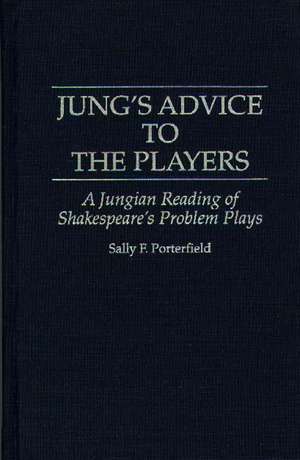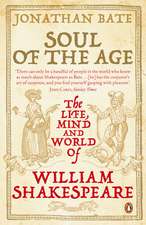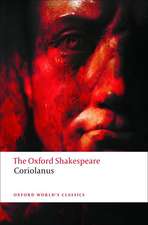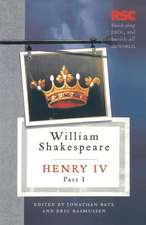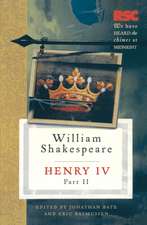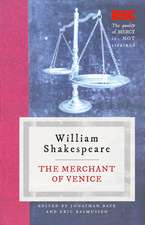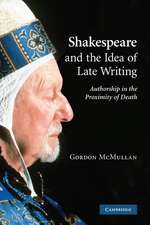Jung's Advice to the Players: A Jungian Reading of Shakespeare's Problem Plays: Contributions in Drama and Theatre Studies
Autor Sally F Porterfielden Limba Engleză Hardback – 28 sep 1994 – vârsta până la 17 ani
Din seria Contributions in Drama and Theatre Studies
- 19%
 Preț: 460.43 lei
Preț: 460.43 lei - 28%
 Preț: 434.88 lei
Preț: 434.88 lei - 27%
 Preț: 345.74 lei
Preț: 345.74 lei - 38%
 Preț: 436.40 lei
Preț: 436.40 lei - 28%
 Preț: 462.28 lei
Preț: 462.28 lei - 28%
 Preț: 437.75 lei
Preț: 437.75 lei - 28%
 Preț: 458.57 lei
Preț: 458.57 lei - 28%
 Preț: 436.57 lei
Preț: 436.57 lei - 24%
 Preț: 464.99 lei
Preț: 464.99 lei - 14%
 Preț: 306.72 lei
Preț: 306.72 lei - 27%
 Preț: 349.63 lei
Preț: 349.63 lei - 18%
 Preț: 321.63 lei
Preț: 321.63 lei - 27%
 Preț: 440.20 lei
Preț: 440.20 lei - 30%
 Preț: 579.68 lei
Preț: 579.68 lei - 24%
 Preț: 461.52 lei
Preț: 461.52 lei - 27%
 Preț: 438.33 lei
Preț: 438.33 lei - 28%
 Preț: 362.37 lei
Preț: 362.37 lei - 35%
 Preț: 462.61 lei
Preț: 462.61 lei - 27%
 Preț: 464.13 lei
Preț: 464.13 lei - 28%
 Preț: 436.92 lei
Preț: 436.92 lei - 28%
 Preț: 344.82 lei
Preț: 344.82 lei - 27%
 Preț: 438.76 lei
Preț: 438.76 lei - 27%
 Preț: 438.67 lei
Preț: 438.67 lei - 27%
 Preț: 510.42 lei
Preț: 510.42 lei - 24%
 Preț: 462.37 lei
Preț: 462.37 lei - 38%
 Preț: 440.11 lei
Preț: 440.11 lei - 27%
 Preț: 377.35 lei
Preț: 377.35 lei - 27%
 Preț: 441.04 lei
Preț: 441.04 lei - 37%
 Preț: 597.63 lei
Preț: 597.63 lei - 27%
 Preț: 438.51 lei
Preț: 438.51 lei - 28%
 Preț: 436.57 lei
Preț: 436.57 lei - 28%
 Preț: 437.67 lei
Preț: 437.67 lei - 28%
 Preț: 461.18 lei
Preț: 461.18 lei - 27%
 Preț: 345.23 lei
Preț: 345.23 lei - 38%
 Preț: 439.01 lei
Preț: 439.01 lei - 38%
 Preț: 435.80 lei
Preț: 435.80 lei - 38%
 Preț: 441.88 lei
Preț: 441.88 lei - 30%
 Preț: 511.14 lei
Preț: 511.14 lei - 28%
 Preț: 462.87 lei
Preț: 462.87 lei - 24%
 Preț: 465.15 lei
Preț: 465.15 lei - 34%
 Preț: 464.65 lei
Preț: 464.65 lei - 28%
 Preț: 437.07 lei
Preț: 437.07 lei - 28%
 Preț: 344.63 lei
Preț: 344.63 lei - 28%
 Preț: 437.47 lei
Preț: 437.47 lei - 30%
 Preț: 593.81 lei
Preț: 593.81 lei - 24%
 Preț: 462.45 lei
Preț: 462.45 lei - 27%
 Preț: 347.51 lei
Preț: 347.51 lei - 34%
 Preț: 464.80 lei
Preț: 464.80 lei - 34%
 Preț: 366.77 lei
Preț: 366.77 lei
Preț: 343.48 lei
Preț vechi: 475.01 lei
-28% Nou
Puncte Express: 515
Preț estimativ în valută:
65.73€ • 68.21$ • 54.94£
65.73€ • 68.21$ • 54.94£
Carte tipărită la comandă
Livrare economică 15-29 martie
Preluare comenzi: 021 569.72.76
Specificații
ISBN-13: 9780313293054
ISBN-10: 0313293058
Pagini: 132
Dimensiuni: 140 x 210 x 15 mm
Greutate: 0.33 kg
Editura: Bloomsbury Publishing
Colecția Praeger
Seria Contributions in Drama and Theatre Studies
Locul publicării:New York, United States
ISBN-10: 0313293058
Pagini: 132
Dimensiuni: 140 x 210 x 15 mm
Greutate: 0.33 kg
Editura: Bloomsbury Publishing
Colecția Praeger
Seria Contributions in Drama and Theatre Studies
Locul publicării:New York, United States
Notă biografică
Sally F. Porterfield received her PhD from the University of Massachusetts at Amherst. At present, she teaches and directs at the Hartt School at the University of Hartford and the University of Connecticut. She has also been a working theatre critic and free-lance writer for 20 years.
Cuprins
AcknowledgmentsAbstractIntroductionMe and My Shadow: Enantiodromia in Measure For MeasureI'll Never Grow Up: The Lost Boys in Troilus and CressidaBewitched, Bothered and Bewildered: The Anima as Trickster in All's WellOh Dad, Poor Dad: The Universal Disappointment of Imperfect Parents in HamletEpilogueEndnotesBibliography
Recenzii
[P]orterfield's book is accessible to the general reader. Indeed, it is a pleasure to read dramatic criticism written in such lucid, crisp prose. Anyone intending to direct or design one of these plays or act a role from them will find much to ponder in this little book.
Since we, as spectators, also have a psychological orentation, Jung helps us understand our own reaction to the characters onstage and to the complex negotiations that Shakespeare depicts within the psyches of his major characters. His theories are nicely consistent with renaissance psychology: extraversion includes the choleric and sanguine, whlie introversion incorporates the melancholic and phlegmatic.
Since we, as spectators, also have a psychological orentation, Jung helps us understand our own reaction to the characters onstage and to the complex negotiations that Shakespeare depicts within the psyches of his major characters. His theories are nicely consistent with renaissance psychology: extraversion includes the choleric and sanguine, whlie introversion incorporates the melancholic and phlegmatic.
